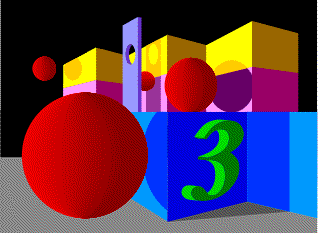Multiple Intelligences Types
Linguistic
Verbal-linguistic learners have highly developed auditory skills, enjoy reading and writing, like to play word games, and have a good memory for names, dates, and places. They like to tell stories, and get their point across. You learn best by saying and hearing words. Poets, writers, and people who speak a great deal in their jobs (like teachers) probably have a high degree of verbal-linguistic intelligence.
|
 
|
|
 
|
Musical
Musical learners are sensitive to the sounds in their environment, including the inflections in the human voice. They enjoy music, and may listen to music when they study or read. They are skilled at pitch and rhythm. Learning through melody and music works well for people with high musical-rhythmic intelligence. Singers, conductors, and composers obviously have a high musical-rhythmic intelligence. Anyone who enjoys, understands, and uses various elements of music probably has a high degree of musical intelligence.
|
Logical-Mathematical
Logical-mathematical intelligence is often linked with the term "scientific thinking." Logical-mathematical people like to explore patterns and relationships, like to experiment with things you don't understand, ask questions, and enjoy well-ordered tasks. They like to work with numbers and relish opportunities to solve problems via logical reasoning. They learn best by classifying information, using abstract thought, and looking for common basic principles and patterns. Many scientists have a high degree of logical-mathematical intelligence.
|
 
|
|

|
Spatial
Spatial people work well maps, charts, diagrams, and visual arts in general. They are able to visualize clear mental images. They like to design and create things. They learn best by looking at pictures and watching videos. Sculptors, painters, architects, surgeons, and engineers are a few professions that require people with well-developed spatial abilities.
|
Kinesthetic
Kinesthetic learners use bodily sensations to gather information. They have good balance and coordination and are good with their hands. Learning activities that provide physical activities and hands-on learning experiences work well for them. People with highly developed kinesthetic abilities include carpenters, mechanics, dancers, gymnasts, swimmers, and jugglers.
|
 
|
|

|
Intrapersonal
Intrapersonal learners are aware of their own strengths, weaknesses, and feelings. They are aware of self, being a creative and independent, and reflective thinker. They usually possess independence, self-confidence, determination, and high motivation. They may respond with strong opinions when controversial topics are discussed. They learn best by engaging in independent study projects rather than working on group projects. Pacing their own instruction is important to them. Entrepreneurs, philosophers, and psychologists are a few professions where strong intrapersonal skills are a benefit.
|
Interpersonal
Interpersonal learners are "people-persons." They enjoy being around people, like talking to people, have many friends, and engage in social activities. They can develop genuine empathy for the feelings of others. They learn best by relating, sharing, and participating in cooperative group environments. The best salespeople, consultants, community organizers, counselors, and teachers have a high interpersonal intelligence.
|
 
|
|
 
|
Naturalist
The so-called "Eighth" Intelligence, Naturalistic learners are in touch with nature - the outdoors in terms of geography, animals, conservation, etc. They sense patterns and are good a categorization. They are also good planners and organizers of living areas. Naturalistic learners learn best studying natural phenomenon in natural settings, learning about how things work. They may express interest in biology, zoology, botany, geology, meteorology, paleontology, or astronomy - fields directly connected to some aspect of nature.
|
return to top | previous page | next page